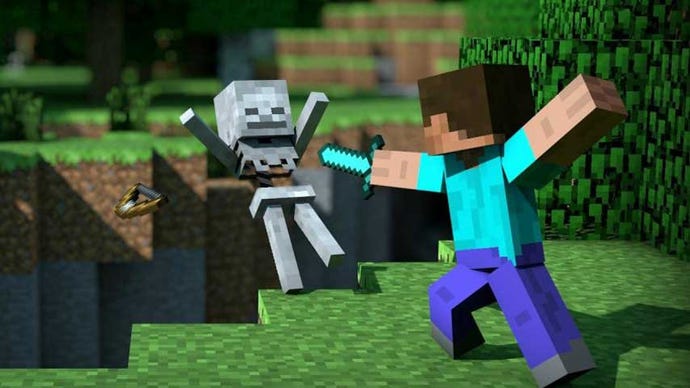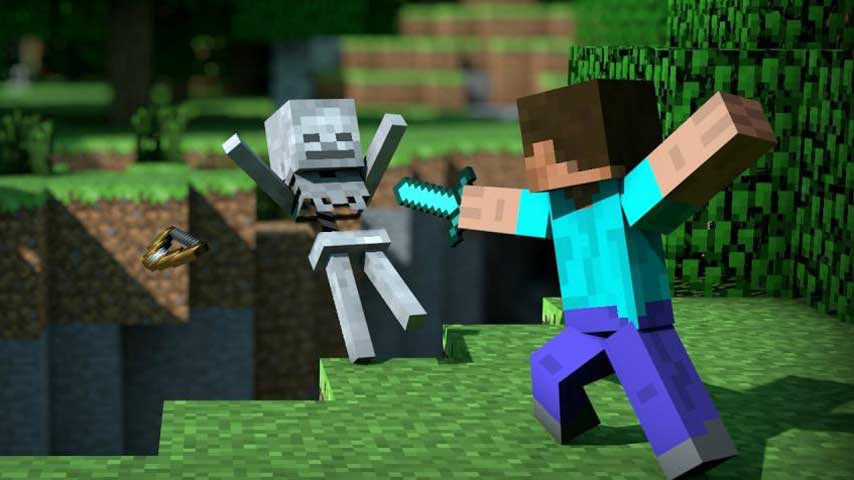With reactions like these, it's no wonder gamers have a bad reputation
Developer tries to protect paying customers while still allowing others to profit from their hard work. Gamers chuck a tanty. And people wonder why we're stereotyped as unsocialised basement dwellers.
Something pretty stupid is happening at the moment: there's a public hue and cry against Mojang, the independent developer of Minecraft, over changes it made to its EULA that benefit everybody.
Here's the executive summary: the end user license agreement for Minecraft forbids users from profiteering on Mojang's hard work by walling off parts of the game for users. That seems pretty fair, right?
But Mojang understands that hosting Minecraft servers costs money, and it doesn't want those users who support the community by hosting to be out of pocket as a result. As a result, Mojang has always permitted hosts to charge a fee for others to access their hardware. (You're also allowed to monetise YouTube videos of Minecraft, by the way; this exception was added to the EULA post-launch.)
This hasn't stopped people breaking the EULA in various ways; for example, some hosts charge users for access to things like game modes, in-game items and XP boosts. Mojang does not approve of this at all, because as far as it's concerned if someone has bought Minecraft they deserve access to everything and shouldn't have to pay for content.
According to a blog post by Markus "Notch" Persson, the company hasn't cracked down on this practice because of the huge amount of work it generates. Nevertheless, Mojang does suffer as a result of these unscrupulous individuals, as customers who get fleeced by server hosts generally complain to and about Mojang, not understanding the distinction between the creator and host.
Still with me so far? Okay. Here's where it gets stupid.
According to Notch, who admits he might not have the full story, somebody asked a Mojang staff member about the terms of the game's EULA, and whether it was forbidden to charge for anything that changes gameplay for some users and not others. As this has always and forever been the case, the staff member replied that it yes, that sort of thing isn't allowed under the EULA.
That was when things exploded. Tweets, forum posts, blogs - a small number of Minecraft users got very, very angry, and very, very vocal.
"A lot of people got the impression that we’re changing the EULA somehow to only now disallow these things, but they were never allowed. A lot of people voiced their concerns. A few people got nasty. Someone said we’re literally worse than EA," Notch wrote, linking to a Wikipedia page detailing add-ons and expansions for The Sims.
Nobody's really sure why this uproar happened, but presumably it hinges on some sort of misunderstanding of what Mojang is trying to do - protect gamers and allow server hosts to make money in ethical ways.
As a result of this backlash, Mojang sat down and worked out a new set of rules, to be developed into a new EULA. The heart of the agreement is the same, and a plain speak outline makes things pretty clear for those who don't enjoy legalese (ie, everyone). You should click through and read the full explanations, especially regarding what can and can't be sold by server hosts, but in short:
- You are allowed to charge players to access your server.
- You are allowed to accept donations.
- You are allowed to provide in-game advertising or sponsorship opportunities.
- You are allowed to sell in-game items so long as they don’t affect gameplay.
- You cannot charge real-world cash for in-game currency.
- Don’t pretend to be Mojang. Provide your customers with loads of info.
"There are new rules. These are new exceptions to the EULA. All of these make the rules more liberal than things were before," Notch wrote.
"People are still asking me to change back to the old EULA. That makes me sad."
It makes me sad, too. The Internet, eh? Can't live with it, can't set it on fire and go live in a cave.
Thanks, Joystiq.









